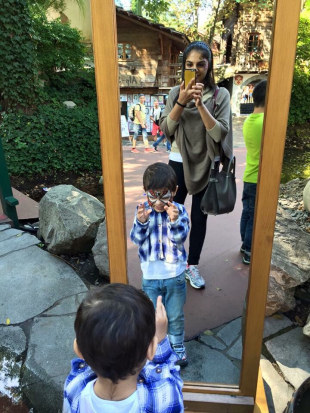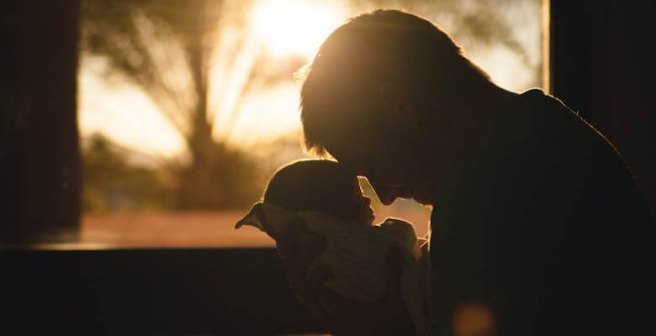What PhD life was like for me as a single mother

As my country, the United Arab Emirates, celebrates its second-ever Emirati Women’s Day (August 28 2018), I wanted to share some personal reflections about being a single mother navigating the PhD experience here at Cambridge.
When I first told my family in the Emirates that I had been accepted to a PhD programme at the University of Cambridge, my father’s bewildered reaction was to proclaim, “What for? You’re divorced and you have a son. Your future is over.”
That kind of reaction is unfortunately not unusual, and my father’s seemingly callous and blunt misogyny was coupled with his unwavering (but also dismissive) support of my pursuit of the PhD. This kind of dissonance is characteristic of a transitioning society that finds itself still grappling with the increasing visibility of the Empowered Emirati Woman. This is especially so when one tries to challenge the more traditionally representational female images – images that are disrupted by the emerging cases of the divorced, the unveiled and conspicuous woman.
My PhD journey began with a senior manager at my workplace asking if I was going to ‘The Cambridge’ or ‘some university in Cambridge.’ There were looks of incredulity and doubt when I had to confirm that I would be going through with my PhD without asking for extra provisions for my dependent son. “We do not provide any extra allowances for dependents,” I was told by a stern-looking, young female as she handed me the scholarship contract to sign. I later came to learn that she neglected to mention that an extra allowance was indeed offered for dependents, but only when the primary scholarship recipient is not female.
That first year at Cambridge passed me by in a blur. A dark cloud hovered over me wherever I went (and I mean one different from the kinds you normally find with British weather). I carried the invisible weight of reproachful remarks, often spoken by close female friends. “You are brave,” I was told many a time, in feigned admiration, “but I could never leave my child behind.” Those female friends were the educated, working-mothers, who took pride in having excelled in their careers beyond the socially-imposed gender limitations. My social detractors were not just women, but the chorus was joined by a fleet of male relatives, colleagues and friends, all singing to the hymn of “dutiful motherhood.” “It must be hard,” they said. And yes, it was hard.
It was very hard to leave my son behind; just as it was the first time I did following a 45-day maternity leave. At the time, no one had labelled me ‘brave’ for leaving my son to return to work, let alone acknowledged the fragility of an unhealed body and a weary soul. How does one live up to that mythical image of a super-woman who is miraculously able to balance work and motherhood? I have yet to find out as I caffeinate my way through a full-time PhD while caring for an incredibly talkative 5-year old. But this experience has become its own answer for me. I found myself zoning in and out of surroundings. There were many times when I wanted to quit. As I struggled to meet deadlines with a foggy mind, a close friend reprimanded me for trying: “You have no compulsion to do this PhD, and nothing to prove to anyone,” she said. “Instead, your focus should be to be with your son every day.” It was a damning condemnation; one that reduces the merit of a PhD to the certification, not the research or intellectual contribution that I, more than anybody else, should be able to make. Female, Muslim and a single mother – there are many complex layers of representation to navigate. Can the subaltern speak? Only if fellow subalterns could stop their subversive silencing.
During the past year I have realised the importance of self-care, and the mental toll that expectations can take over the course of a PhD programme. As I return to Cambridge — with my son with me for my final doctorate year — I am steeled with determination to write a compelling piece of original research as I look back at my society with a compassionate female gaze. My drafts may be born long after agonising mental pains, but like my son, they are born fully-formed and beautifully disruptive.
Mira with her son
Mira Al Hussein (@miraalhussein) is a fourth year PhD candidate at the Faculty of Education and Darwin College. This story was first published on August 28, 2018, on the FERSA Blog run by graduate students at the Faculty of Education in Cambridge (available here) and has been republished here with permission.





